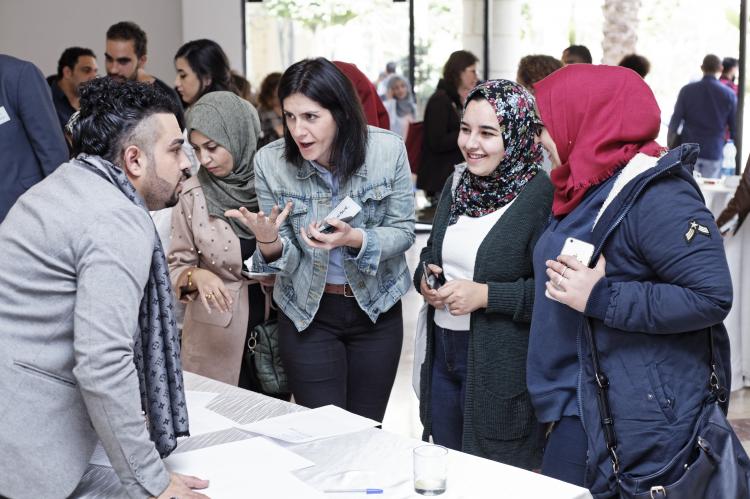
Capacity Development in Israel & Palestine
Capacity Development in Conflict Transformation
It is so easy to hate. But how do you talk to your enemy? How do you “get what you need” in protracted conflicts, and all this in a non-violent manner? For decades Israelis and Palestinians have been denying each other’s right to national existence, fostering two opposing narratives and denying each other’s needs. And for years the psychological dimension of this conflict has been underestimated. Is mutual recognition possible, in this case? In our work we focus on psychological factors and methods of conflict transformation to improve the impact of civil society organizations working on the opposing narratives.
Understanding Change Processes
To understand change processes, we draw on important works, such as the approach of social psychologist Kurt Lewin. He has shown how difficult it is for people to change, but also how to overcome these barriers by focusing on peoples’ need for a positive and active identity. We also apply in our work important insights from peace researchers like Herbert C. Kelman. His “interactive problem-solving workshop” approach involves a deeper engagement in participants’ needs than traditional mediation techniques. The importance of empathy and recognizing each other’s needs can also be found in the seminal work of Marshall C. Rosenberg and his method of non-violent communication (NVC).
Supporting Civil Society Actors
Our partners work under the constraints of this conflict and under growing economic, social and political pressure. We help to facilitate the integration of the approaches mentioned above into their daily work to improve their impact on society. We support public outreach activities and events that question and combat exclusive narratives and the black-and-white logic of the conflict.
Bottom-Up: The Future of Jerusalem
In Jerusalem, we are currently supporting peace organisations to integrate a method called ARIA, developed by Professor Jay Rothman.
Rothman believes that “the conflict is about identity and competing historical narratives. Recognizing the roots of the dispute offers the best way to achieve an end to the violence”.
This project aims at formulating policy recommendations for the future of Jerusalem, based on the needs of Jerusalem residents. It thus hopes to shift the focus of the discourse away from abstract political terms to the real needs of the people living in this contested city.
Reviving the Peace Camp
In Arabic as well as in Hebrew, peace has become a difficult word. Many people have lost hope and connect only disappointments with the term. Together with a small organization, we are currently exploring ways to revive the Israeli peace camp by opening up old organizations to new audiences beyond the typical secular elite.
